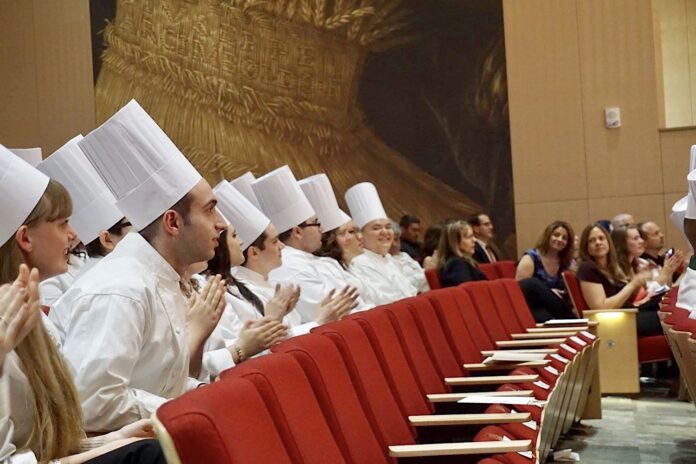
If the pandemic has taken an especially heavy toll on recent college graduates, none have been harder hit than new and aspiring chefs.
Many recent culinary school graduates have found themselves lost in a sea of closed restaurant doors.
Culinary Institute of America graduate Marissa Mazzella, who had been working at Club Pelican Bay in North Naples, Florida, since September 2019, lost her job in June 2020, when Florida shut down many restaurants.
She was worried about losing her job. But her parents were more worried about protecting her health, and urged her to come home right away.
“So, when I lost my job, I packed all my belongings in the car and moved back home,” to Westchester Country, NY, with her parents, Mazzella said.
“Due to only having a background in cooking, it is hard for me to find a job now,” she added. “Many of the restaurants aren’t even opening back up, and even if they do, they are rehiring staff they already had. And not everyone was brought back, because many people are still afraid to eat out, and there is just not enough business.”
Mazzella tried to speak in positive terms about her plans.
“I am just going with the flow, and trying to figure things out,” she said. “This year has not been easy, but I am lucky to be healthy, and to be able to move back home.”
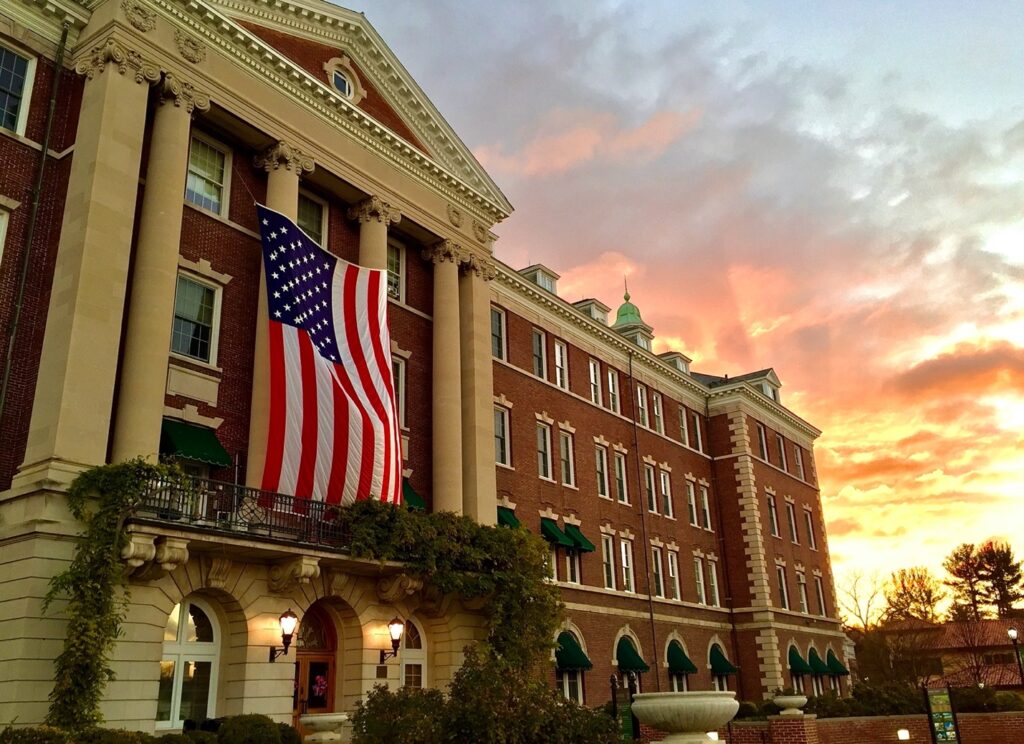
The Culinary Institute of America, Mazzella’s alma mater and one of the world’s top culinary schools, was forced to shut its doors to its students, staff and the public for the first time since 1946.
The Culinary Institute of America, one of the world’s top culinary schools, was forced to shut its doors to its students, staff and the public for the first time since 1946.
The CIA, as it is informally known, was the first of its kind: a school founded to offer food industry trade skills to World War II veterans.
“The CIA is the leading institution in preparing the next wave of great American chefs,” says Tim Zagat, co-founder and publisher of Zagat Survey, in an endorsement featured in the school’s marketing materials.
Based on CDC advisories and orders from New York State, the college was forced to halt its in-person classes, and to shut the noted restaurants the students operate.
Unlike a traditional university, the CIA requires all of its courses to be hands on — its method for teaching its 2,774 students.
“Throughout my 25 years of teaching at the CIA, I have never been out of the kitchen for more than a month,” said associate professor and chef Jim Maraldo, who teaches “Cuisines of The Mediterranean.”
“We hardly close during a blizzard. This is truly something I did not expect to see in my lifetime, and I have seen a lot as a Vietnam veteran. I truly feel bad for these kids graduating, and entering the battlefield.”
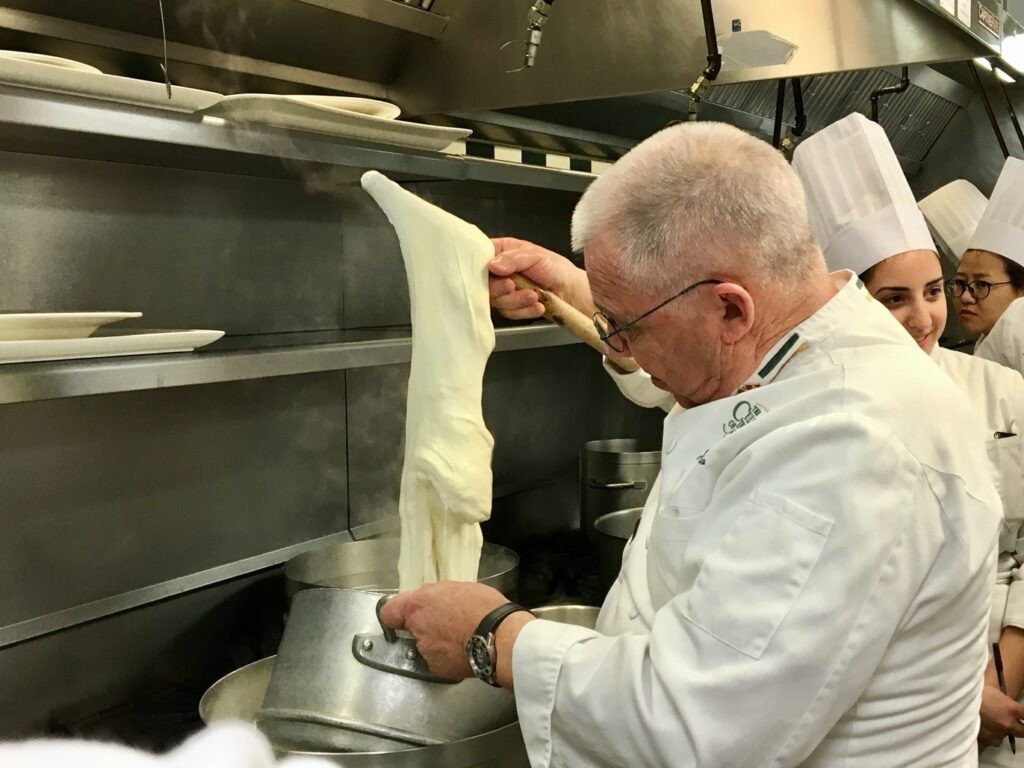
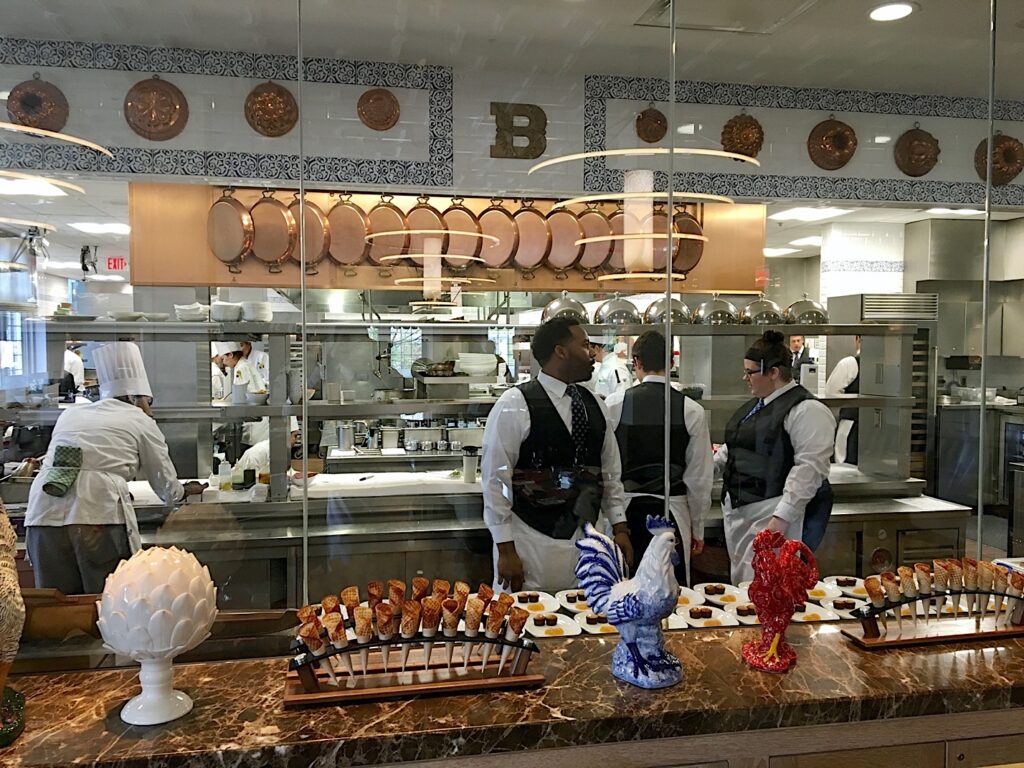
Normally the campus only closes for a month’s summer break. But the pandemic forced it to shut down for six months.
“This is something I did not expect to see in my lifetime. I truly feel bad for these kids graduating, and entering the battlefield.” — Culinary Institute of America associate professor and chef Jim Maraldo
The CIA operates like a production line, following a block system and strict military-style education, with new enrollment groups starting every three weeks, and a graduating class every three weeks. Many graduates have become world-renowned and celebrity chefs: the CIA counts Anthony Bourdain, Grant Achatz, Duff Goldman, Anne Burrell and David Burke among its famous alumni.
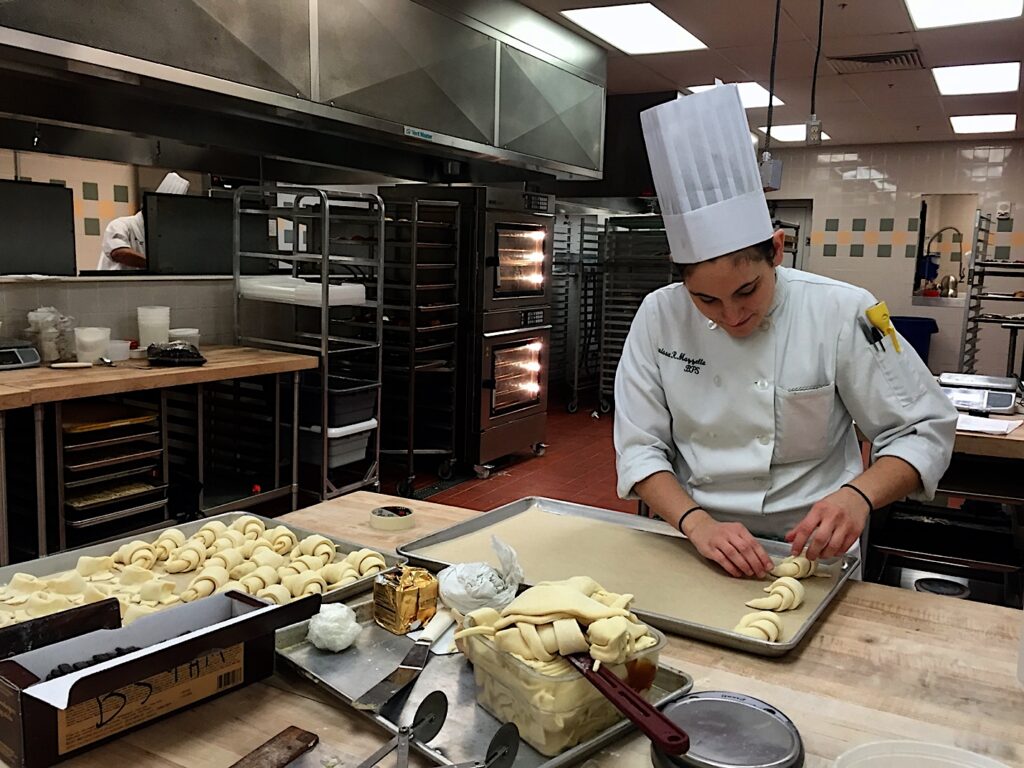
These days, though, new graduates have been fighting to keep both their jobs and their health.
The fine dining industry to which many graduates aspire has been the hardest hit in the restaurant business. High-end restaurants found themselves closing their doors indefinitely; when outdoor dining became an option, it was often simply not feasible.
Andrais Proisi, a CIA graduate and front server at the New York City three-Michelin star restaurant Per Se, was let go in spring 2020, as the city began to shut down. Employed at Per Se since June 2019, Proisi said he was “pretty worried” about his situation.
“Our director held a meeting and told all of us that we may not be able to go back to work when restaurants are ordered to close,” he said. [He said that] “it may be a few weeks, or in a worst case scenario probably a month.”
“The turnover rate of [restaurant] employees is extremely high; you can be replaced in a snap of a finger, like a plate of food being dropped on the floor.” — Culinary school graduate Kiana Justiniano
But Per Se was still closed as of this writing [editor’s note: the restaurant announced that it had reopened on Oct. 15]. So Proisi is “trying to figure out the next steps,” since finding any employment in the restaurant industry is especially challenging.
Many restaurants are now struggling just to break even.
Unfortunately, many people who lost their jobs are also struggling, to put food on the table — and some have even lost their battles with coronavirus.
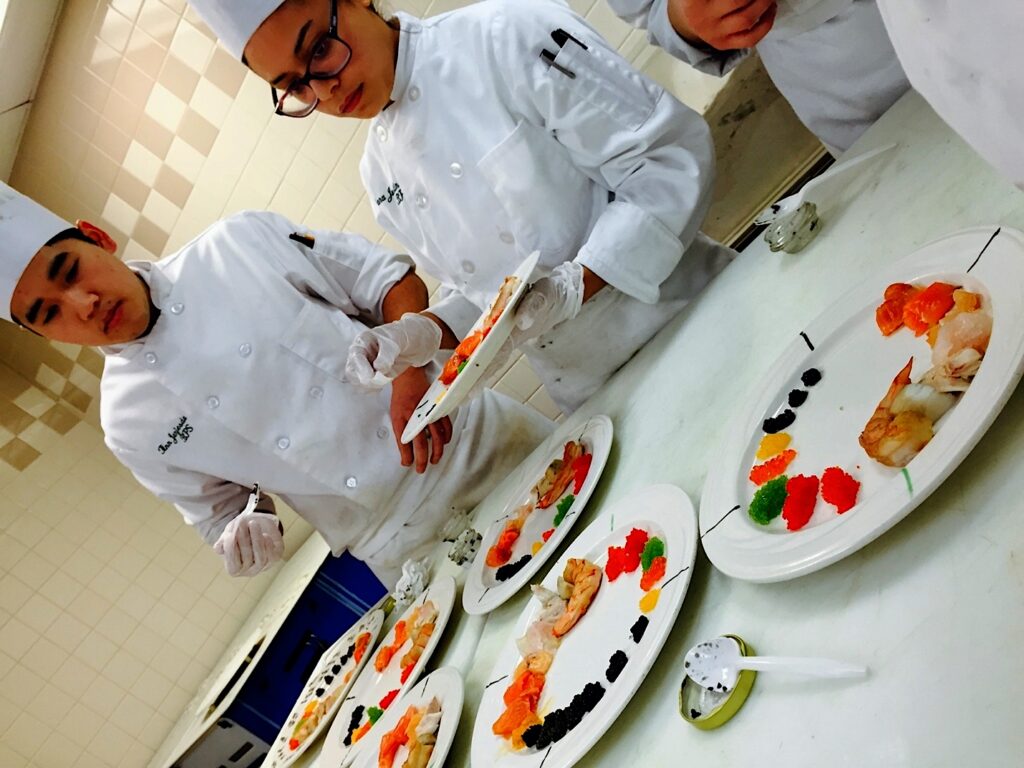
Culinary school graduates now face extra challenges, above those of traditional liberal arts graduates. Since their degree is very specific, they’re at a disadvantage when competing for other kinds of work.
CIA graduate Kiana Justiniano had already been struggling to maintain a decent food industry job. Since graduating, she has worked at many restaurants, from casual to fine dining.
“The turnover rate of employees is extremely high; you can be replaced in a snap of a finger, like a plate of food being dropped on the floor,” she said.
“You can’t just work from home as a restaurant worker,” Justiniano pointed out. “We need to be hands on, and we don’t have the luxury to work out of a laptop in our pajamas. If there is no business and no operations, that’s it. No job. No pay.”
This is the reality of all chefs: they can’t work remotely, unless they happen to be operating a business from home.
Though culinary school graduates may have a tougher time adapting to the new normal, their skills aren’t useless. People around the world turn to chefs and restaurants to get a nice meal, and to take a break from cooking – and some people rely completely on these establishments, as they cannot bear thought of firing up a skillet.

